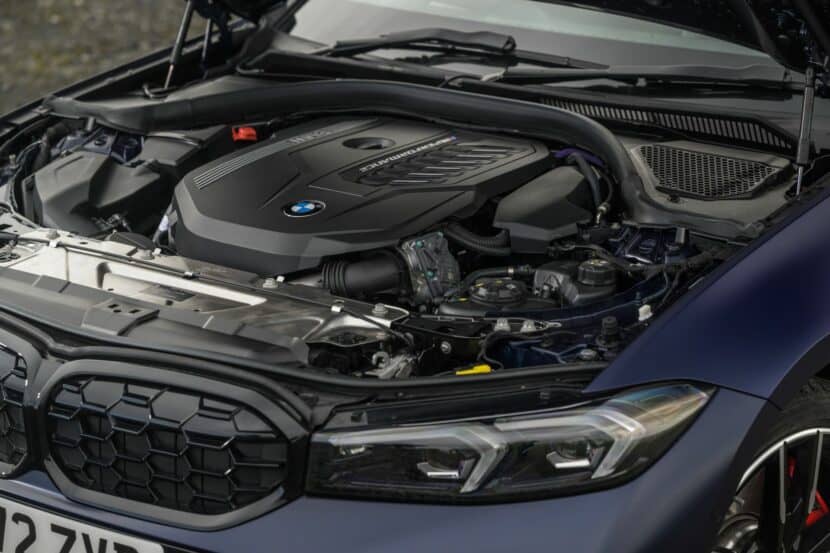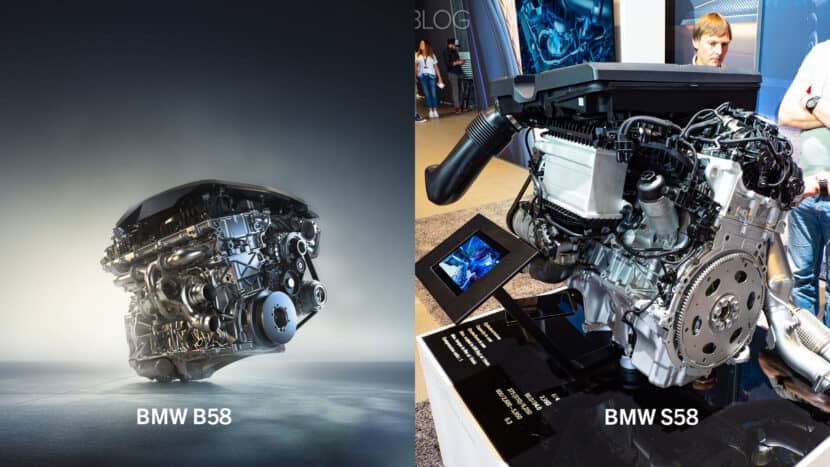Yesterday, Frank van Meel, CEO of BMW M, confirmed what we’ve been writing about for months: the next-generation BMW M3, codename G84, will retain its straight-six engine and be launched alongside the iM3 ZA0 EV. He talked about in an interview that the M3 will proceed to make use of a six-cylinder 3.0 liter engine, however he stopped in need of confirming which engine variant will that be. One factor is evident although: The G84 M3 received’t be a PHEV just like the bigger M5. As a substitute, in keeping with our sources, BMW will introduce a 48-volt mild-hybrid system—a extra refined strategy for a performance-focused sports activities sedan.
Why No PHEV for the M3?


There are a number of the reason why the M3 received’t observe the M5’s plug-in hybrid path. Firstly, the addition of a big battery pack would considerably enhance the automobile’s weight, which might compromise the M3’s agility and dynamic dealing with traits. Weight administration is a key think about holding the M3 true to its motorsport roots, and including a cumbersome battery system would undermine this important high quality.
Secondly, the shopper base for the M3 differs from those that would possibly select a plug-in hybrid for every day electrical driving. M3 house owners sometimes prioritize efficiency and pleasure over all-electric every day driving. A very good comparability is the shopper profile for the brand new Porsche 911 hybrid, which focuses on efficiency over electrical vary—a mindset shared by BMW M3 consumers.
Lastly, the packaging constraints play a pivotal position. The M3 is clearly smaller than the M5, making it difficult to include the complicated mechanicals of a PHEV with out compromising inside area and stability. A PHEV setup would require not solely room for a battery pack but additionally extra cooling and electrical infrastructure, that are simpler to accommodate within the bigger M5.
The Delicate-Hybrid Strategy


As a substitute of going the PHEV route, BMW will equip the subsequent G84 M3 with a 48-volt mild-hybrid system. Delicate-hybrid know-how works by offering supplementary electrical help to the interior combustion engine, notably throughout coasting, and enhancing features like automated start-stop. Nonetheless, in contrast to a PHEV, a mild-hybrid system can’t function independently from the combustion engine.
BMW’s mild-hybrid know-how brings a number of benefits to the M3, together with the extremely publicized “eBoost” perform. This function delivers extra horsepower with minimal lag, using the 48-volt energy provide and starter motor to reinforce acceleration. The generator, powered by a lithium-ion battery, is cleverly built-in into the engine’s belt drive, guaranteeing clean energy supply. This technique doesn’t remodel the M3 right into a hybrid powerhouse however enhances efficiency with minimal weight acquire, staying true to the automotive’s Final Driving Machine slogan.
The Engine Query: S58 or B58?


One of many largest uncertainties surrounding the next-gen M3 is the engine selection. The present M3 is powered by the S58 twin-turbocharged 3.0-liter straight-six engine, but it surely has not but been licensed for the upcoming Euro 7 emissions requirements, set to take impact in mid-2025. There’s additionally the B58 3.0 liter which already has the 48 volt mild-hybrid integration, and it’s used, efficiently, throughout numerous M Efficiency BMW fashions.
From a enterprise standpoint, the B58 might make sense, because it’s extensively utilized in fashions just like the M240i, M340i, Z4 M40i, and Toyota Supra. A 48-volt mild-hybrid B58 would even be more cost effective, however this resolution might frustrate hardcore M fans. The final time BMW positioned a non-M engine in an M automotive—the N55 within the F87 M2—it sparked appreciable debate, regardless of the engine’s stable efficiency.
Selecting the B58 would possibly make monetary sense, but it surely could possibly be seen as a step backward by purists. If BMW goes with the S58, they might want to make sure the engine is Euro 7-compliant, and fortuitously there may be loads of time to get the engine prepared for a 2027-2028 M3 launch. Both manner, BMW has a problem on its arms because it balances emissions compliance with the expectations of M3 fans.
A Observe-Prepared Delicate-Hybrid M3


One factor is for certain although: BMW received’t compromise on the M3’s monitor capabilities. If the B58 is chosen, it is going to possible be a high-performance variant designed to resist prolonged monitor instances and ship the sharp driving dynamics M vehicles are identified for. The 48-volt mild-hybrid system will improve efficiency, not water it down, guaranteeing the subsequent M3 delivers on its popularity for being a real driver’s automotive.
With an anticipated energy output of 530-560 horsepower, the mild-hybrid M3 will supply thrilling efficiency whereas assembly stricter emissions requirements. The drivetrain received’t match the output of the M5’s PHEV system, however it is going to present the proper stability between energy and weight, holding the M3 a real benchmark in its section.
Fortunately, BMW received’t go down the AMG route with a four-cylinder hybrid.


